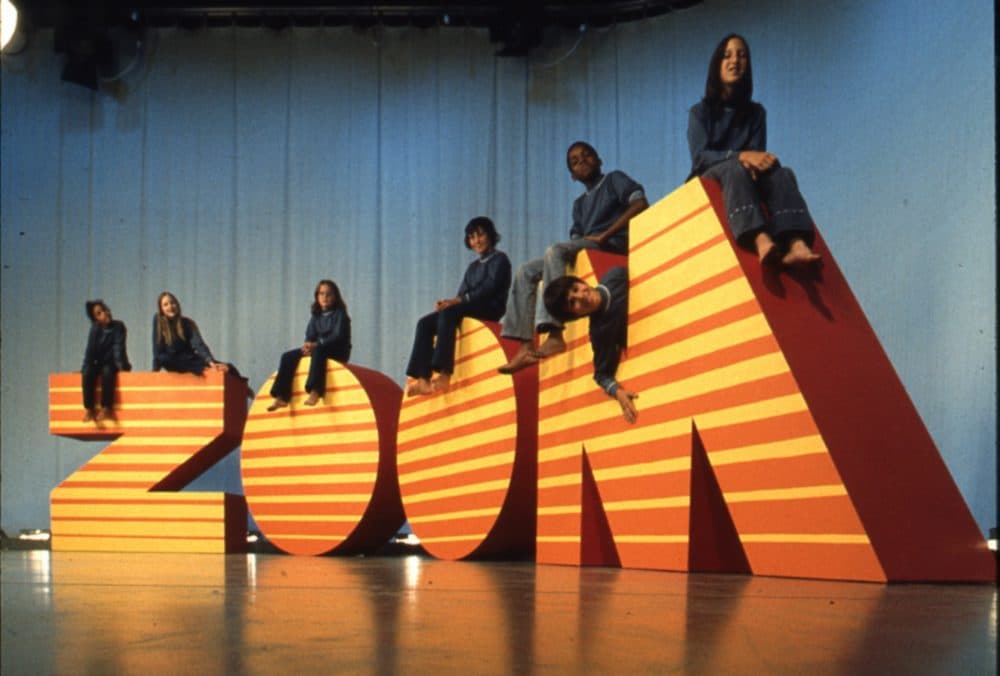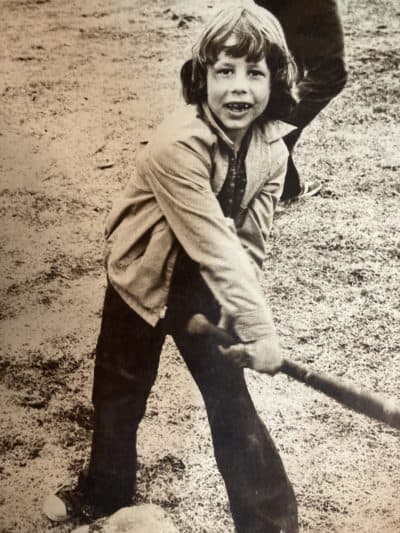Advertisement
Commentary
In the '70s, the 'Zoom' kids were my people

Half a century later, I can still sing the address: "Write Zoom. Z, double-O, M. Box 3-5-0. Boston, Mass. 0-2-1-3-4. Send it to Zoom!"
I remember Ubbi-Dubbi. ("Hub-i, frub-iends”). I remember the word riddle game called "Fannee Doolee” ("Fannee Doolee likes sweets, but hates candy”) although I never did figure it out.
Most of all, I remember my old friends: Tracy, Neal, Leon, Danny, Maura and especially, Bernadette, my first TV crush, or crush in any medium, real or fictive. Bernadette did this magical thing while swinging her arms, a kind of butterfly fluttering effect, that entranced my 7-year-old brain and heart.
I’m talking about “Zoom,” the children’s television show that debuted in 1972 and ran until 1980. The innovative PBS program celebrated its 50th anniversary last month.
Locals may not know that “Zoom” was produced in Boston. I’ll never forget WGBH’s hypnotic opening logo roll, with accompanying trippy electronic music beaming into my family’s clunky TV, inviting me like a space traveler to explore something new.

And it was new.
The landscape of 1970s children's television was already rupturing, as kiddie programs broke free of the traditional storytime/cartoons/puppet show format of “Captain Kangaroo” and “Howdy Doody,” or the moralizing, “be a Do-Bee” tone of “Romper Room.” But even the groundbreaking “Sesame Street” and “Mister Rogers' Neighborhood” relied on puppet (and Muppet) antics. And adult supervision.
Not “Zoom.”
The opening credits showed kids — and only kids — running amok in a TV studio, singing and dancing in striped rugby shirts, bell-bottom jeans and Keds. This caught my attention. Where were the adults? Had the kids risen up and overthrown them, and taken over the control room? Was this the children’s revolution, and was it being televised?
During that opening dance freak-out number, each “Zoom” cast member introduced themself — “I’m Bernadette!" — then displayed a special move or talent, like my crush's fancy hand-twirl, playing the kazoo or jamming on the drums (like Leon).
The opener ended with the exhortation: “Who are you? What do you do? How are you? Let’s hear from you. We need you.”
“Who was I? What do I do? How am I?" Great questions. It seemed no one had asked me before.
Was this the children’s revolution, and was it being televised?
I might have been the show’s ideal viewer: shy, suffering from crushing insecurity and lack of self-confidence, an outsider even among my small circle of neighborhood friends. Perhaps my passive, introverted tendencies were the result of being the middle child. No one seemed to pay me much attention. I could fly under the radar most of the time.
These TV kids spoke to me, giving me that nudge towards agency and even the spotlight: You can do this, Ethan, and become that kid you want to be. Clearly, I needed role models. Here were ordinary kids taking charge and getting stuff done. If dorky “Zoom” kids like Joe and Tracy could be brash, bold, goofy, and sassy, and the star of a TV show — heck, even run their own TV show — why not me?
Like a mini version of “Saturday Night Live,” “Zoom” consisted of the cast telling jokes, singing songs and performing skits. They also solicited poems, art, ideas for kid-friendly skits, games and crafts, and questions from their viewers. Sometimes the program profiled kids, or turned their poems into short films, or broadcast short kid-made cartoons and documentaries. The kids lounged around the set and read their viewer mail on air. (Take that, David Letterman.) They also unabashedly talked about “issues” like prejudice or emotions like sadness or being alone.
“Zoom” took my pulse, kid-to-kid. Not some adult checking in on me. Tracy and Neal and Bernadette wanted to hear my voice. With “Zoom,” I’d found my weirdo tribe. I could hang out with oddballs who were quirky and contemplative, with troubles and feelings, just like me.
I might have been the show’s ideal viewer: shy, suffering from crushing insecurity and lack of self-confidence ...
“Zoom” also opened my eyes to the wider world. My white-bread New Hampshire town barely within the broadcast range of Boston, while safe and idyllic, was also wildly sheltered. These cosmopolitan kids were diverse — white, Black, Latinx, Asian — with names unlike any of my contemporaries: Luiz, Carmen, Hector. “Zoom” was my first glimpse into the lives of suburban and urban children beyond my immediate realm.
Of course, I had binged on a steady diet of TV families: The Waltons, The Ingalls (of “Little House on the Prairie” fame), the Cunninghams (“Happy Days”) and that most perfect exemplar, The Bradys. But “Zoom” kids weren’t actors. They were doers, readers and thinkers. They were real, like me.
The cast allowed me to see myself in them — in an ordinary kid way, not some idealized, Bobby Brady-superstar-worship way. I began to think to myself, I do know who I might become. Maybe I’ll be an artist, a cartoonist, a filmmaker (and a veterinarian). Or a writer. With these kids as my virtual friends, maybe I could.
I also began dreaming what my signature move might be. Probably a funky dance with my kitten.
The “Zoom” kids, they had my back. Bernadette, she had my back. I was certain. Maybe she still does. (Leon went on to be a drummer with Ben Harper and the Innocent Criminals.)
As for Fannee Doolee, it’s taken me 50 years to solve the riddle: She only likes words with double letters.
